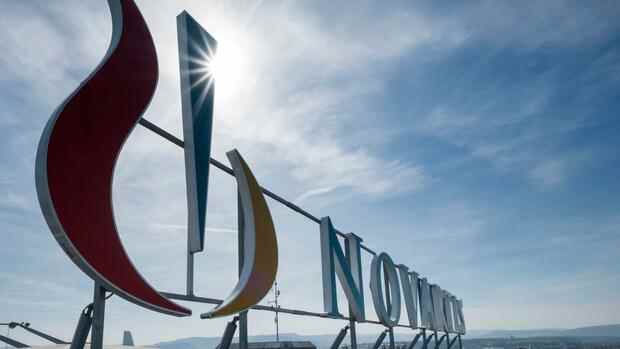In the third quarter, sales grew five percent on constant currency to $ 13.03 billion and adjusted operating income grew nine percent to $ 4.47 billion.
(Photo: dpa)
Frankfurt The Swiss pharmaceutical company Novartis is considering a sale of its generic drug business. The company has initiated a strategic review of its generics division Sandoz, the group announced on Tuesday. It would review all options – from keeping business to breaking up – to determine how best to maximize shareholder value, Novartis said.
On the stock exchange, the share rose 1.3 percent to more than 78 Swiss francs in the morning.
There has been speculation in the markets about a possible spin-off of the Sandoz division with its patent-free drugs for many years. In the conference call with journalists on Tuesday morning, CEO Vasant Narasimhan left open whether Novartis can also imagine a merger of its division with another generics company. It is too early to talk about strategic options, he said. The process has just started.
The group intends to provide the results of the strategic review by the end of next year. This review has no effect on Novartis’ stake in the pharmaceutical company Roche, said Narasimhan when asked. Novartis holds a third of Roche’s bearer shares. Here, too, there has been repeated speculation about a possible sale in the past.
Top jobs of the day
Find the best jobs now and
be notified by email.
Various factors speak in favor of a spin-off of the generics business: On the one hand, the trend towards business focus in the pharmaceutical industry continues. Many companies have replaced business areas in the past few months and years. The once highly diversified Novartis Group has also increasingly concentrated its business and left segments such as veterinary medicine and diagnostics.
Strong pressure in the US market
Since CEO Vas Narasimhan took office in February 2018, Novartis has completed other major strategic transactions: the over-the-counter pharmaceuticals division was brought into a joint venture with Glaxo-Smithkline (GSK), and the Alcon ophthalmology division was valued as an independent company in 2019 $ 27 billion to the stock market.
Since then, Novartis has focused on innovative pharmaceuticals, which in 2020 accounted for more than 80 percent of sales of 48.7 billion dollars and contributed an even higher proportion to the company’s profits, which were around eight billion dollars in 2020.
Because the generics division Sandoz has been battling the persistent price pressure in the generics industry for years. In the world’s largest US market in particular, the players are under great pressure, mainly because insurance companies are enforcing ever higher discounts. This had already moved other companies in the industry to sell their generics business or to merge with other players in the past few years. For example, the US company Pfizer formed the new global industry leader Viatris from its generics division together with the Mylan group last year.
The now listed company expects sales of more than 17 billion dollars this year. The former market leader in the generic industry, the Israeli Teva, last had an annual turnover of almost 17 billion dollars. This means that both competitors are significantly larger than Sandoz, who recently had annual sales of 9.6 billion euros in 2020. Even though the Swiss Sandoz Group plays a leading role in many regions of the world, the company is losing weight compared to the newly formed competition in the market. Economies of scale play an important role in the industry in order to be able to keep up with the inexpensive Asian competition.
Sandoz is becoming less important
At Novartis in particular, it has been evident for some time that Sandoz is losing importance with its group contribution in view of the much more dynamic development of innovative drugs. This is also reflected in the figures for the third quarter that Novartis presented on Tuesday: While the pharmaceutical business with top products such as the heart drug Entresto and Cosentyx for psoriasis grew by eight percent to $ 10.6 billion in sales, Sandoz lost slightly by one percent to 2, $ 4 billion a. Once again, the pressure on prices weighed on and canceled out the volume increases, with Sandoz losing around 20 percent of sales in the USA. Sandoz’s core operating income margin fell 13 percent to $ 571 million.
All in all, Novartis was able to increase its sales in the third quarter by six percent to 13 billion dollars. Adjusted for special items, core operating income grew ten percent to $ 4.5 billion. The company continues to see a slight negative impact of the coronavirus pandemic on parts of the business, especially in the oncology and generics areas. However, the Covid-19 situation is normalizing in most regions and therapeutic areas, it is said.
More: Novartis drug fails to prove efficacy in lung cancer.
